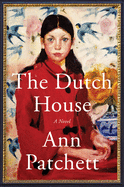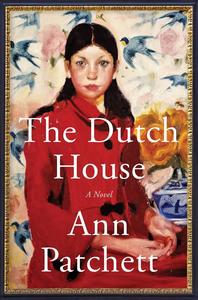
 Following the pyrotechnics of her novels Bel Canto and State of Wonder, Ann Patchett demonstrated her versatility in the more subdued family drama Commonwealth. With The Dutch House, another multigenerational family story, she continues in that vein, demonstrating her gift for perceptive character portraits and her depth of understanding of the way we both damage and forgive those most dear to us.
Following the pyrotechnics of her novels Bel Canto and State of Wonder, Ann Patchett demonstrated her versatility in the more subdued family drama Commonwealth. With The Dutch House, another multigenerational family story, she continues in that vein, demonstrating her gift for perceptive character portraits and her depth of understanding of the way we both damage and forgive those most dear to us.
Built in 1922, in the Philadelphia suburb of Elkins Park (then mostly farmland), the eponymous house takes its name from the VanHoebeeks. The family lavishes some of a fortune amassed in the wholesale distribution of cigarettes on a dwelling that features a ballroom and Delft mantels imported from a castle in Utrecht. Selling off parcels of land in the aftermath of the Depression, the VanHoebeeks occupy the house until 1944, when it sits idle until it's purchased by Cyril Conroy, a World War II veteran who's beginning to dabble in real estate development.
Seen through the eyes of the youngest member of the Conroy family, Danny, The Dutch House recounts how that optimistic purchase profoundly shapes his family's story over the next five decades. Revolted by her ambitious husband's extravagance and motivated by a strong social conscience, Cyril's wife, May, decamps for India several years after the family moves in, to work among the poor. She leaves behind three-year-old Danny and his 10-year-old sister, Maeve. After the divorce, and Maeve's departure for college in New York City, Cyril remarries, welcoming his new wife, Andrea, and her two young daughters into the home--the first in a series of events that culminate in the Conroy children's eventual banishment.
Patchett focuses on the sibling relationship between Maeve, who returns to the Philadelphia area to handle the finances of a frozen vegetable distributor, and Danny, who secures a medical degree but never abandons his ambition to follow his father into the real estate business. She gently probes their emotional bond, one that's both strengthened and tested by their mother's sudden abandonment. Absent any contact with their mother over the decades, her departure remains an open wound, even as Danny marries and starts his own family in New York and Maeve settles into a modest but seemingly happy life as a single woman in suburban Philadelphia. Their sense of loss is dramatized in scenes of Danny and Maeve sitting in a parked car across the street from the Dutch House, as they imagine the life that's unfolding without them behind its glowing windows.
Patchett's resolution of their story is both efficient and emotionally resonant. Without judging the adults whose actions, even the well-intentioned ones, seem motivated more by self-interest than by concern for their offspring, she creates a realistic portrayal of the lifelong injury they have inflicted. That wisdom makes the understated The Dutch House an admirable addition to her already impressive body of work. --Harvey Freedenberg, freelance reviewer
Shelf Talker: A family's life is shaped irrevocably by its relationship to an opulent house in Philadelphia's suburbs.

